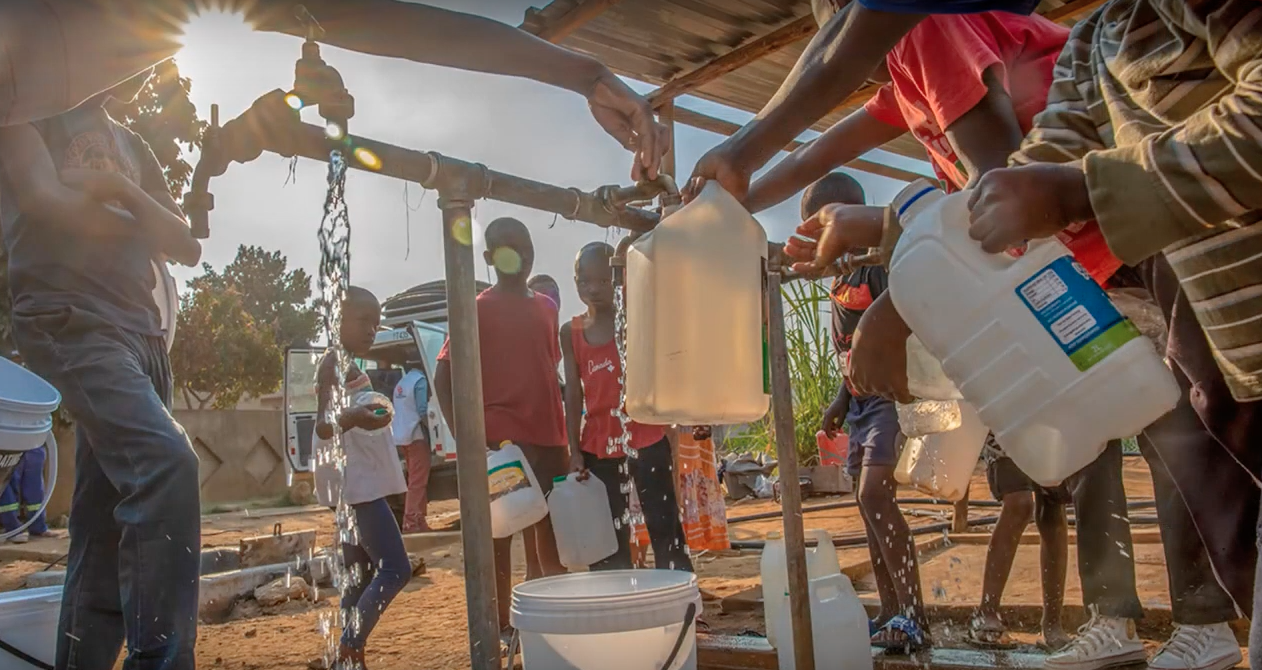
Zimbabwe Environmental Health Toolkit
Background and Rationale
In an effort to control outbreaks and prevent reoccurrence of waterborne infectious diseases in Harare’s suburbs, Doctors Without Borders (MSF) has successfully developed and piloted an Environmental Health Toolkit with a strong Water, Sanitation and Hygiene (WASH) focus.
Recent programme results, as well as operational research, validate the toolkit as an effective, cost-efficient, and sustainable approach meeting an urgent demand in Zimbabwe and the South Africa Region.
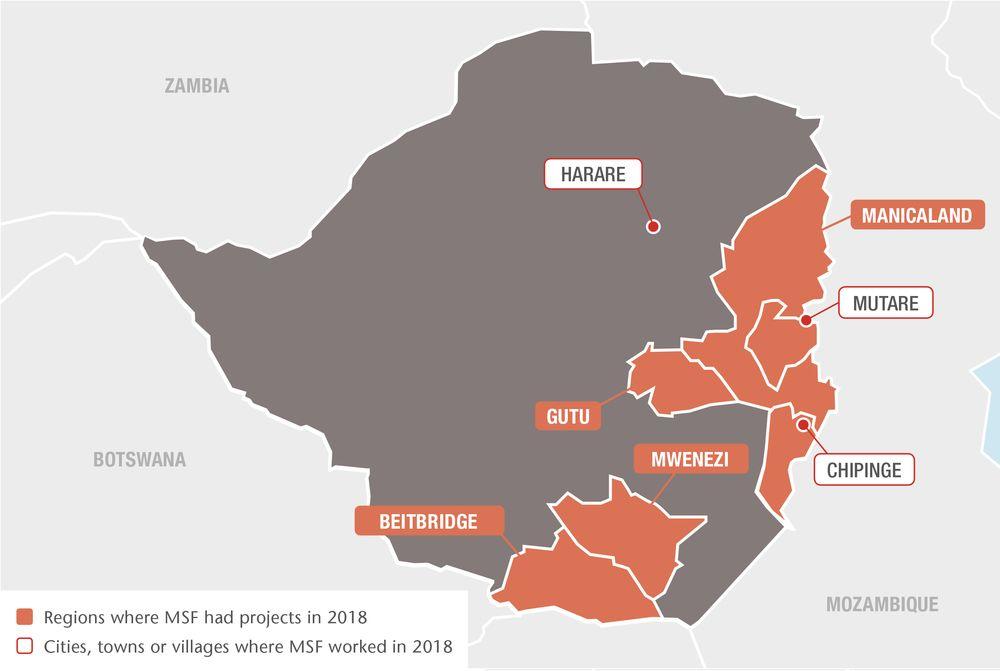
Building on the toolkit’s success and the promising evidence, MSF is looking to expand the use of the toolkit in neighbouring countries and the South African Region and is offering its tools and training materials to neighbouring MSF missions and partners.
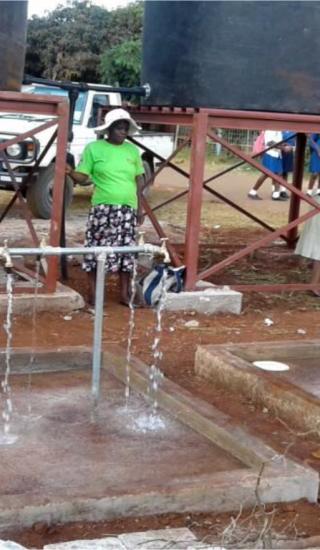
Toolkit Components
The toolkit currently consists of four modular components, which can be adapted individually or jointly
Borehole Diagnosing and Rehabilitation
Diagnosing, repairing, cleaning, and rehabilitating obstructed or contaminated boreholes is often more cost-efficient and effective than drilling new ones. A custom-fit vehicle with a mobile camera, data probes, depth water sampler helps in diagnosing the underlying cause of borehole dysfunctionality and actions are taken based on the diagnosis to rehabilitate the boreholes to get fresh water from existing nonfunctional water points.
Community Health Clubs
Engaging local communities in managing water points creates sustainable ownership and responsibility and helps ensure the monitoring of water quality. The training for Community Health Clubs (CHCs) includes water point management, resource mobilization, sanitation, personal hygiene, and containing infectious disease outbreaks.
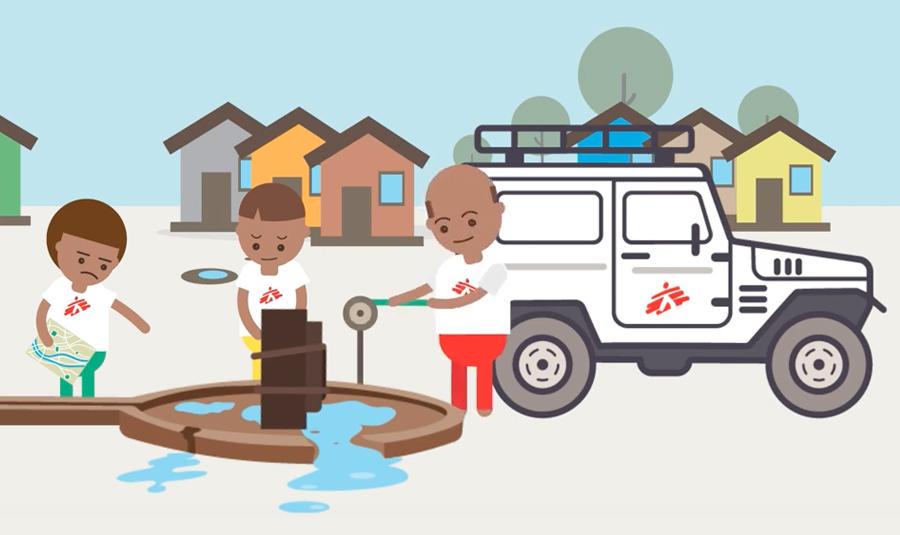
Borehole Drilling and Construction Techniques
Shallow water aquifers can be contaminated with bacteria and get into boreholes. When drilling new boreholes, it is therefore imperative to use the right drilling techniques and cement a proper sanitary seal around the borehole casing.
Geophysical Surveying and Borehole Siting
Geophysical surveying technology helps to find the best location for a new borehole, with subsurface images showing potential water-bearing formations.
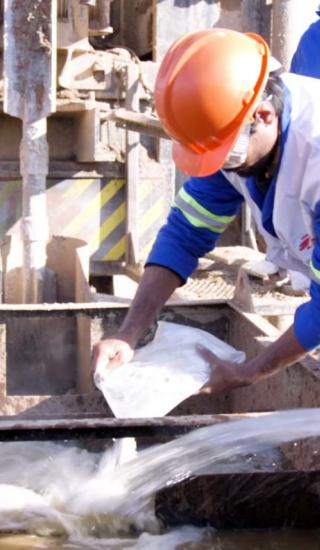
Borehole Diagnostics Toolkit
Borehole Diagnostics Toolkit
Borehole Diagnostics
A borehole is a structure that is susceptible to physical, chemical and biological processes that may influence its life span, yield and water quality. The above factors depend on the quality of borehole construction, the way it is operated and geological conditions or aquifer characteristics.
Deterioration of a borehole may lead to some serious contaminations of water harmful for human use and eventually it being abandoned, leading to costly measures to develop alternative water sources for communities. Borehole diagnosis and rehabilitation is often a cheaper alternative to new borehole drilling.
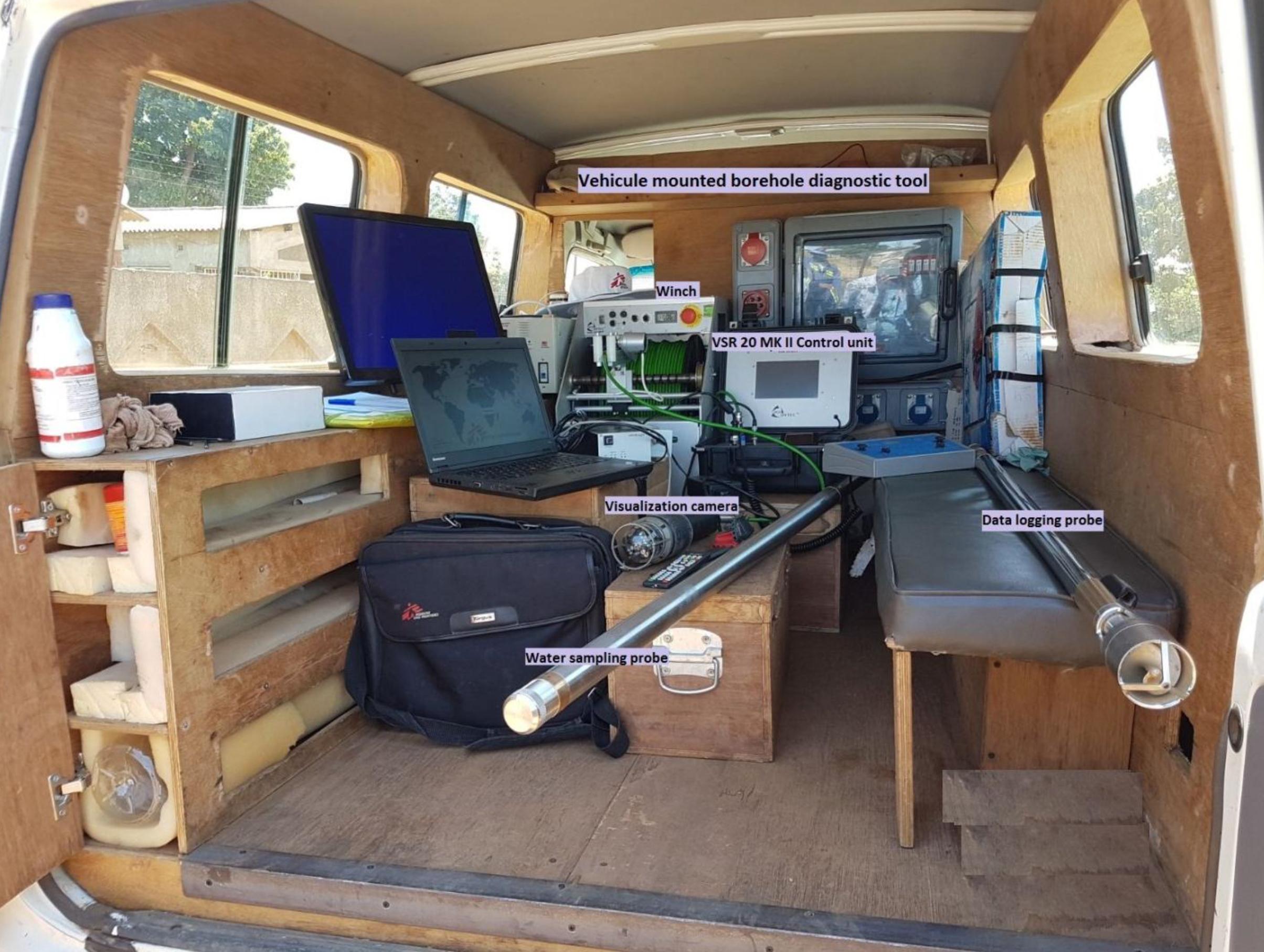
Borehole diagnosis entails using visual enhancement tools like down-the-hole camera, depth water sampling probe and data logging probe tools to infer the physical, chemical, geological and aquifer characteristics that may be influencing the poor performance of a borehole. This inference combined with water quality analysis and borehole capacity pumping tests helps to understand the cause of borehole deterioration and determine the relevance of a corrective measure.
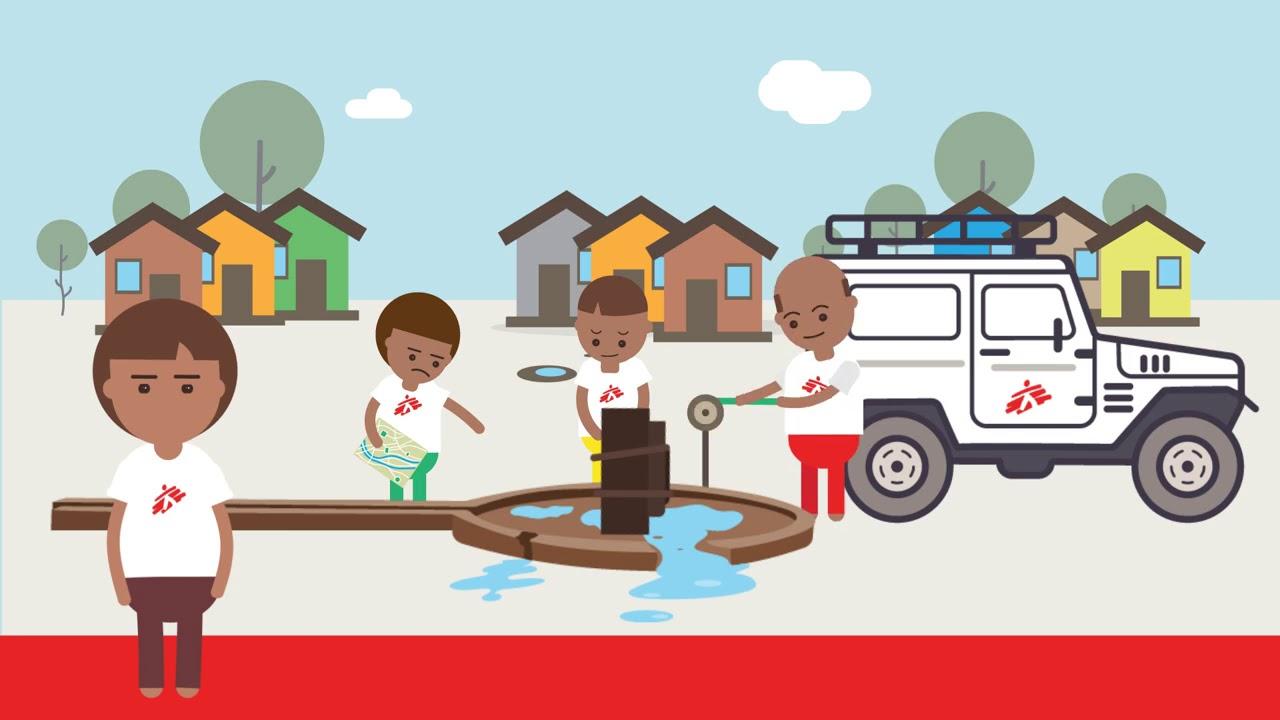
Borehole Diagnostics
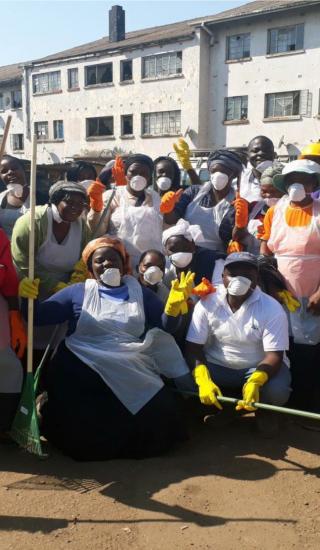
Community Health Club Toolkit
This manual outlines the Community Health Club (CHC) approach and how this approach has been specifically used by MSF as a sustainable way of running water points and teaching communities on health and hygiene issues.
This methodology has been implemented by MSF with the support of various stakeholders including the City of Harare Department, Health Promotion Department, Ministry of Health and Child Care, Church leaders and Schools responsible (where water points were established), local community leaders and political leaders.
Community Health Club
The manual covers how community hand pumps and newly drilled boreholes have been upgraded to water points that provide communities with clean and safe drinking water. How communities have been trained in health and hygiene issues for behaviour change and their involvement in running the water point to ensure sustainability.
This approach has been implemented in low income, high-density suburbs of Harare, Zimbabwe, which have been identified as the epicentre of diarrheal diseases. The approach is ready to roll-out in similar contexts where community involvement is crucial for the sustainability of the humanitarian interventions in the WASH sector.
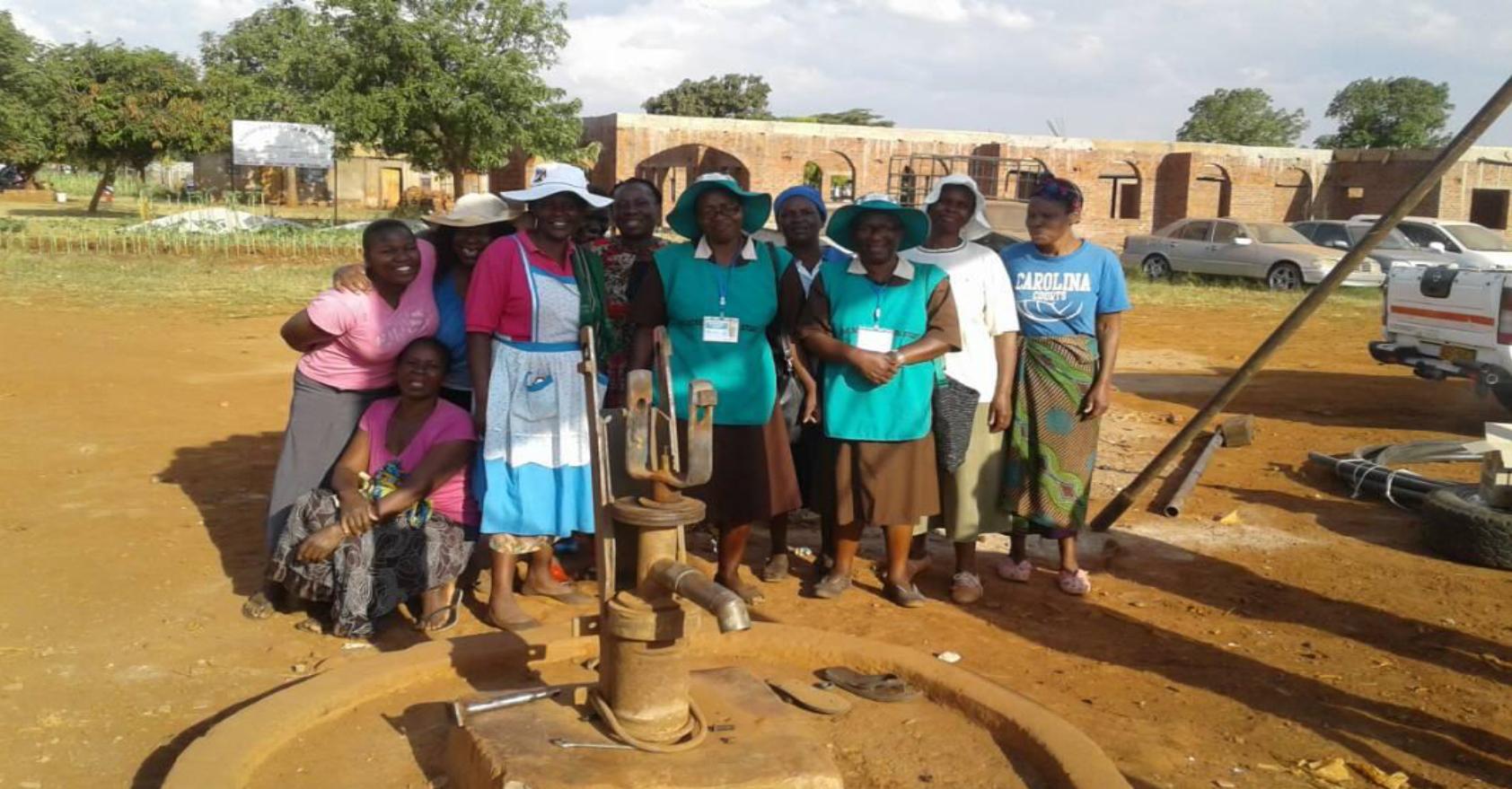
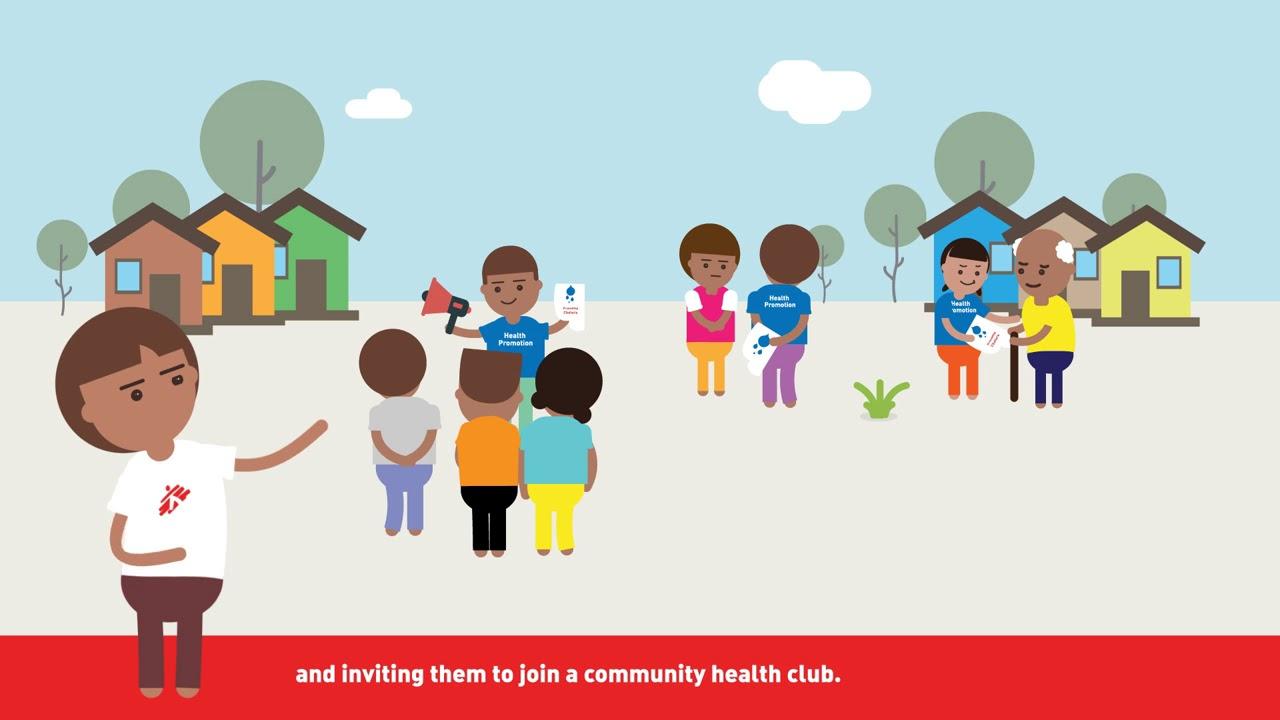
WASH Community Health Clubs Zimbabwe
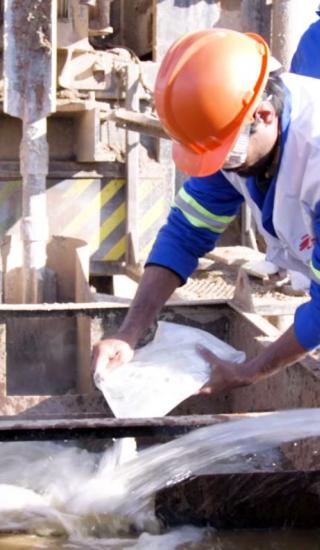
Borehole Drilling and Construction Toolkit
The purpose of this manual is to assist MSF field engineers and Environmental Health experts to supervise boreholes drillings for providing sustainable water points to the communities.
Borehole Drilling and Construction
The purpose of this manual is to assist MSF field engineers and Environmental Health experts to supervise boreholes drillings for providing sustainable water points to the communities. The manual is a practical guide to MSF standard drilling techniques and implementing drilling programs in places with hydrogeological potential.
It provides a step by step methodology based on the experiences in drilling boreholes in peri-urban and urban settings in Harare, Zimbabwe. Drawing on these experiences and using the expertise available within the countries, programs can be tailored to the needs and the means of different country programs.
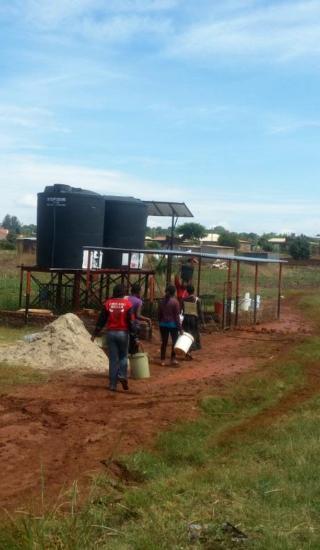
Geophysical Surveying Technique Toolkit
MSF plans to use this equipment for its further interventions within the southern African region
The ERT surveying is a geophysical technique, useful for characterizing the sub-surface geological formations in terms of their electrical properties. Variations in electrical resistivity (or conductivity) typically correlate with variations in lithology, water saturation, fluid conductivity, salinity, porosity and permeability. This information can be used to map various subsurface characteristics including the presence of the possible fractured zones and groundwater.
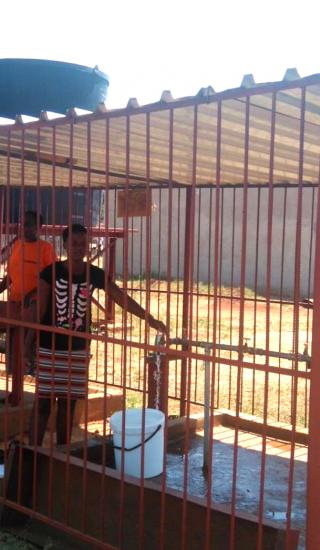
KOBO Toolkit: User Guide
Used in more and more field missions, such as Malnutrition Nigeria, HIV South Africa,
Watsan Lebanon, Migrants...
Features
Build forms: Easily create surveys forms. Navigate through an intuitive and powerful tool. Use template Libraries.
Collect data: Quick collect data on smartphone and tablets online or offline. Synchronize with your office.
Export and analyze: Get direct access to your data. Export in usual formats (xls, CSV,..) for analysis in any dedicated tool, even the GIS Dashboard.
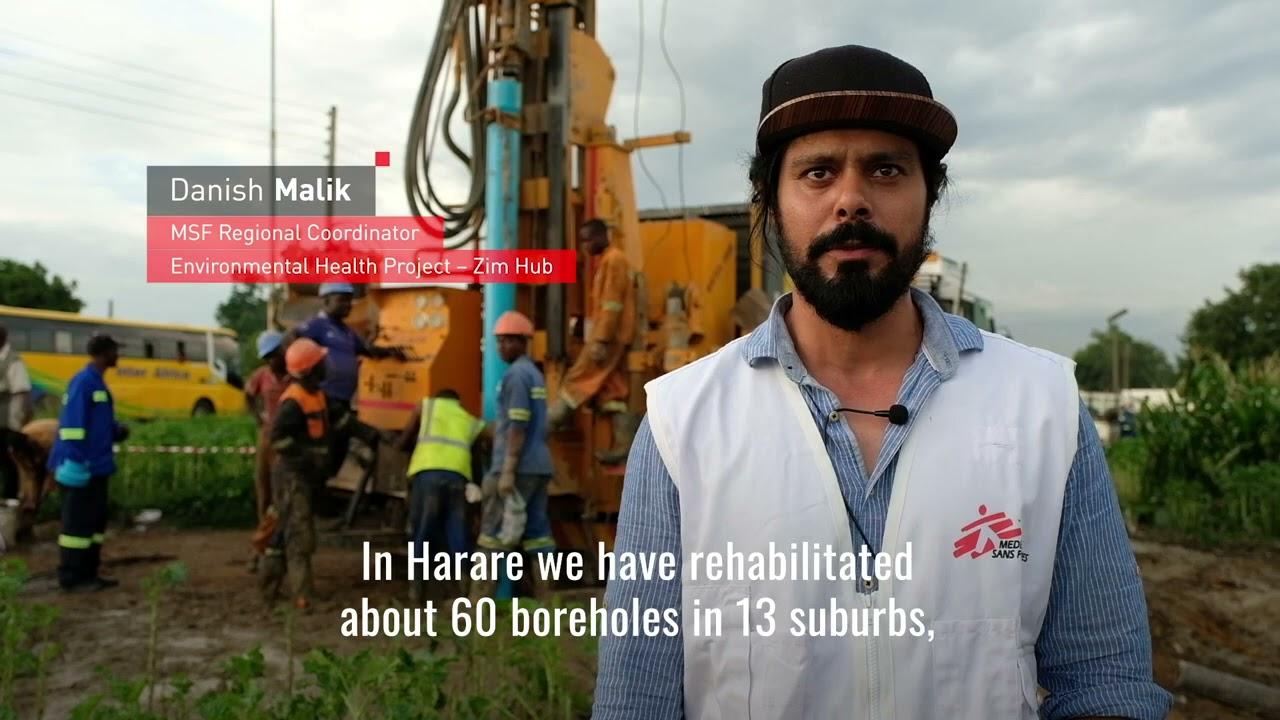
Preventing Cholera with Access to Clean Water in Zimbabwe
Contact and Support
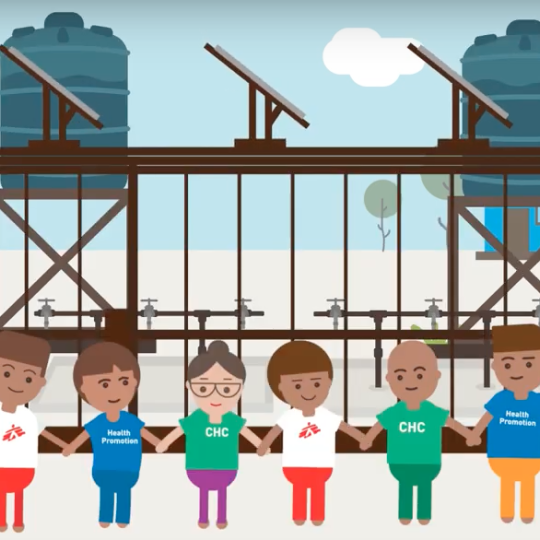
MSF Zimbabwe and its Water, Sanitation and Hygiene Team are accompanying the regional upscaling of the toolkit with dedicated training and implementation support. MSF’s operational research unit LuxOR and its policy and practice advisor support the project with strategic planning, communication and advocacy support.
For all questions and support requests please contact:
Danish Malik
Regional Project Coordinator (Zimbabwe, Malawi, Mozambique, South Africa)
Environmental Health Project
Médecins Sans Frontières (OCB)| Zimbabwe Mission